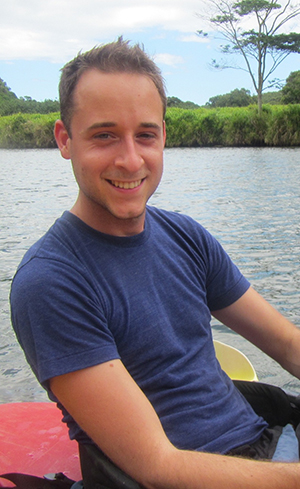David Broockman, 25, Political Science
The summer before David Broockman’s senior year at Yale, while most of his friends were taking posh jobs at banks, he was living out of a car. He drove his green 1995 Honda Accord around the South as he searched for answers to this question: Do black elected officials represent blacks differently than whites do? He watched and took notes as African American and Caucasian politicians interacted with their constituents.
Although he was semi-homeless, he says, “I couldn’t have had more fun—and not because I liked the living arrangements. Even in the circumstances, I had the time of my life dreaming up ways to shed light on a question that I thought answering would matter for people’s lives.” It was during this time that Broockman decided to devote his life to political science. After Yale, he headed to the University of California-Berkeley to get his Ph.D.
(Photo: David Broockman)

The sleeping-in-the car experiment wasn’t Broockman’s first brush with politics. In middle school, he worked on Howard Dean’s presidential campaign, entering data and knocking on Iowans’ doors. In high school and college, he was an intern, then a staffer, for his local congressperson (Broockman grew up in Austin, Texas). He was also a Democratic National Convention delegate for Barack Obama.
Broockman first got interested in politics because of climate change: “Thirteen-year-old me didn’t understand—and 25-year-old me on some level still doesn’t understand—why politicians knowingly sit by as we destroy our planet.” In fact, Broockman initially planned to be an environmental engineer so that he could think up ways to keep the planet pure. “Then I realized that we have the technology,” he says. “We just don’t have the political will.”
He declared political science as his major not thinking that he’d make academia his career. That changed when he took a class from professors Don Green and Alan Gerber about designing political science experiments. “That course taught me three things,” he says. “First, we actually know almost nothing about how politics works. Second, learning things about how politics works is possible. And third, such learning can have a tremendous impact.”
It also became clear to him that field experiments could deliver politics out of the hands of pundits and make it data-driven instead. “What sets experiments apart is their ability to rigorously determine cause and effect,” he says, which makes them uniquely useful to people in government.
After the Green and Gerber class, Broockman kept having new ideas for experiments. So far, he’s researched how to make grassroots activism influence politicians’ behavior; which parts of persuasive messages actually change people’s minds; and how your neighbors’ political views can color your own. One of his studies found that elected representatives think that their constituents are more conservative than they actually are (“We heard from politicians that our findings made them think twice about their read on their district,” Broockman says), while another revealed that policymakers respond less to black people.
“There are too many things to study to study anything but questions that matter,” Broockman says.
His latest study is the first of its kind on campaign finance—a randomized experiment about the effects of monetary contributions on lawmakers’ decisions. Basically, he found that people who donated to a congressperson’s campaign have far greater access to that legislator. Perhaps more importantly, Broockman found that people who didn’t donate money barely ever gained any level of access.
It’s obvious to others that Broockman’s work has the potential to change things. His research has resulted in seven published journal articles, with many others in the works. Among the slew of prizes he’s been offered is a National Science Foundation fellowship, which he took, and a Presidential Scholars Award from Harvard, which he declined because he decided to go to Berkeley instead, “mostly for the faculty fit,” he says. “I get along really great with my advisors here.”
Of his many accomplishments, though, he’s still proudest of that first travel-heavy experiment he did, the one in his Honda that proved that black politicians represent black people better. “Over the last few years, lawyers, politicians, and fundraisers have used these results to support efforts to elect minorities to office,” Broockman says. “I couldn’t have had these ideas without putting in a ton of shoe leather.”
In addition to being a Ph.D. student at Berkeley, Broockman is also a fellow at Credo, the activist mobile-phone company, as well as a software-engineering intern at Google, where he’s leading an experimental project about the effects of advertising. At Credo, he’s designed experiments that have changed how that company builds momentum for environmental campaigns.
“Any real-world impacts of much of my work will be at best indirect,” Broockman concedes. “Nevertheless, for every project I work on, there is a larger question in mind that I think, if answered, could ultimately impact how politics is practiced.”
See our complete 2014 list of the 30 top thinkers under 30 here.





